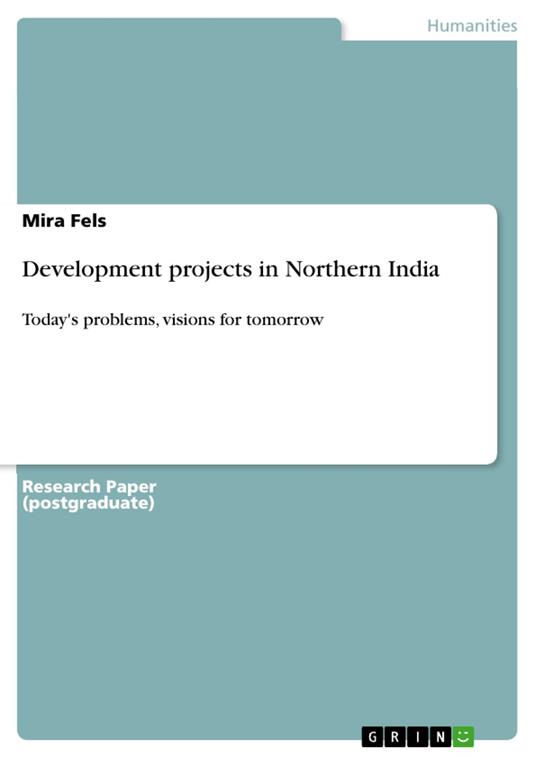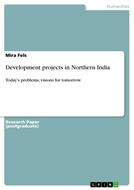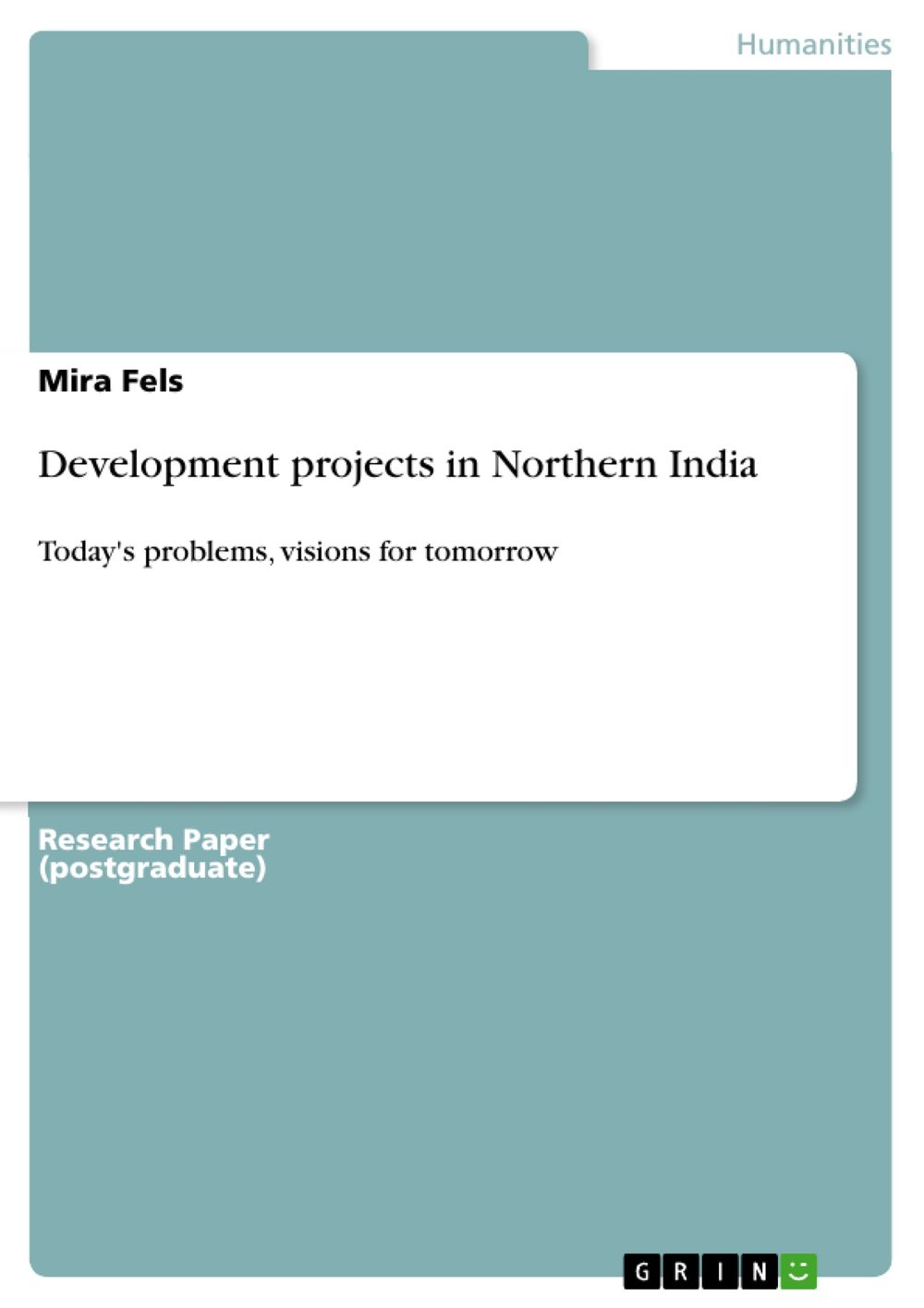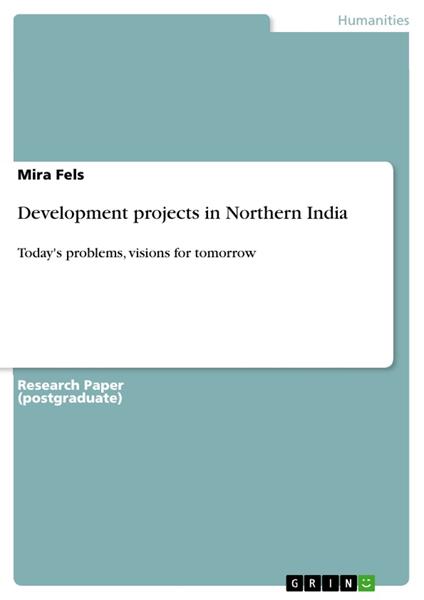Development projects in Northern India
Research Paper (postgraduate) from the year 2005 in the subject Ethnology / Cultural Anthropology, grade: sehr gut, University of Hamburg (Institut für Ethnologie), course: Feldforschungsbericht, language: English, abstract: In my research, I wanted to learn about the problems of disadvantaged groups in India. And I wanted to learn how NGOs attempt to solve these problems. I was especially interested in two subject areas: the situation of the indigenous population, seventy million people, and the situation of the rural communities. During my stay in India, I did research for five weeks in the village Amapurkashi with the "Society for Agro-Industrial Education in India", which is mainly active in the area of education with schools and a college. They also organize health camps and help the locals to find new income opportunities. Additionally, I spent ten days with the NGO "Society for the Promotion of Himalayan Indigenous Activities”, which works with the indigenous Van Gujjar, who live nomadically in the Shivalik forests, the foothills of the Himalaya. My main research questions were: 1. Which problems are most urgent for the disadvantaged groups? What solutions do they and the NGO offer? 2. Who is responsible for these problems? Who could, or should, solve them? How? 3. What future would people like to see for their children, their community, their country? I questioned the NGO workers and the locals. In the beginning of my paper, I describe, the developmental situation in India and introduce the two projects, in which I did my research. In the third chapter, I discuss the course of the research and introduce the most important informants and interview partners. Following that, I introduce the methodology I used and how it worked. I also reflect on my own role, on coming back home and on analysing the data. In the fifth chapter, I discuss the results of my research. After a general introduction to the situations of the Van Gujjar and the inhabitants of Amapurkashi, I introduce the answers to the question about local problems. This part is divided into different subjects relevant to both fields, in order to highlight problems the two communities have in common as well as to show the differences. First I talk about income, after that about population growth, the role of the women, health, education and opportunities, politicians and bureaucrats, new income opportunities, environmental protection and problems of developmental cooperation. In the following part, I discuss responsibilities and priorities of the locals. Finally, I introduce the philosophies and strategies of the NGOs I worked with, certain interesting projects and evaluate their work.
-
Autore:
-
Anno edizione:2008
-
Editore:
-
Formato:
-
Lingua:Inglese
Formato:
Gli eBook venduti da Feltrinelli.it sono in formato ePub e possono essere protetti da Adobe DRM. In caso di download di un file protetto da DRM si otterrà un file in formato .acs, (Adobe Content Server Message), che dovrà essere aperto tramite Adobe Digital Editions e autorizzato tramite un account Adobe, prima di poter essere letto su pc o trasferito su dispositivi compatibili.
Cloud:
Gli eBook venduti da Feltrinelli.it sono sincronizzati automaticamente su tutti i client di lettura Kobo successivamente all’acquisto. Grazie al Cloud Kobo i progressi di lettura, le note, le evidenziazioni vengono salvati e sincronizzati automaticamente su tutti i dispositivi e le APP di lettura Kobo utilizzati per la lettura.
Clicca qui per sapere come scaricare gli ebook utilizzando un pc con sistema operativo Windows



